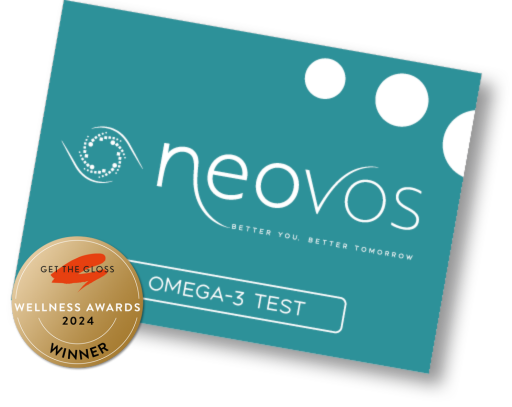
Getting to know omega-3
Type omega-3 into a search engine and you will probably see over 30 million results, with plenty of information about omega-3 supplements and food sources, together with articles and studies about its numerous benefits for the brain, eye health, cardiovascular health and reproduction. But…
What exactly is omega-3?
Omega-3 fats are a family of polyunsaturated fatty acids (PUFA), which are considered anti-inflammatory. They include EPA (Eicosapentaenoic acid), DHA (Docosahexaenoic acid), DPA (Docosapentaenoic acid) and ALA (Alpha-linolenic acid).
Once omega-3 fatty acids are consumed they are incorporated into all our cell membranes helping to keep them flexible enough for nutrients to move into the cells and toxins to move out. In addition to having an influence on inflammatory cell signalling, omega-3 can help to reduce inflammation by taking up space in the cell membrane, thus preventing more inflammatory fatty acids from doing so.
Whilst a little bit of inflammation is vital when we are injured or have an infection, we do not want too much of it, as it can lead to tissue damage and conditions such as rheumatoid arthritis and asthma.
What are the benefits?
With omega-3’s ability to reduce inflammation it is believed to have various benefits, such as:
- Reducing the risk of anxiety and depression
- Lowering blood pressure and cholesterol
- Maintaining healthy heart rhythm
- Improving circulation
- Reducing the risk of atopic conditions such as asthma and eczema
- Reducing diabetes risk
- Improvement in rheumatoid arthritis symptoms
How much omega-3 do we need and where to find it?
As we are unable to synthesise omega-3, we must obtain it from our diet. EPA and DHA, are found in the highest amounts in oily fish such as salmon, trout, mackerel, sardines, herring and anchovies, whilst vegan omega-3 foods include flaxseed, walnuts and chia seeds, which are all good sources of ALA.
There are no hard and fast rules for omega-3 consumption. However, a good guide is to have:
- 2-3 portions of oily fish a week,
- or between 1.3g and 1.6g per day of ALA containing foods,
- or approximately 500mg of combined EPA and DHA daily.
Note: these amounts may vary depending on factors such as age, gender, health status, medication and medical conditions.
If a fish dish is not your thing, then taking an omega-3 fish oil supplement can be a good alternative. However, you may prefer to take a vegan omega-3 supplement derived from algae. This can be particularly helpful if you are only eating sources of ALA, which the body must convert into the more beneficial EPA and DHA.
Omega-3 should be an important part of our daily diet. However, it is not the only type of fat we need and should be equally balanced with healthy sources of omega-6, such as nuts and seeds, which are also necessary for good health. As with anything, it is all about balance, and achieving balance in our diet makes it much easier to achieve balance in our body.

